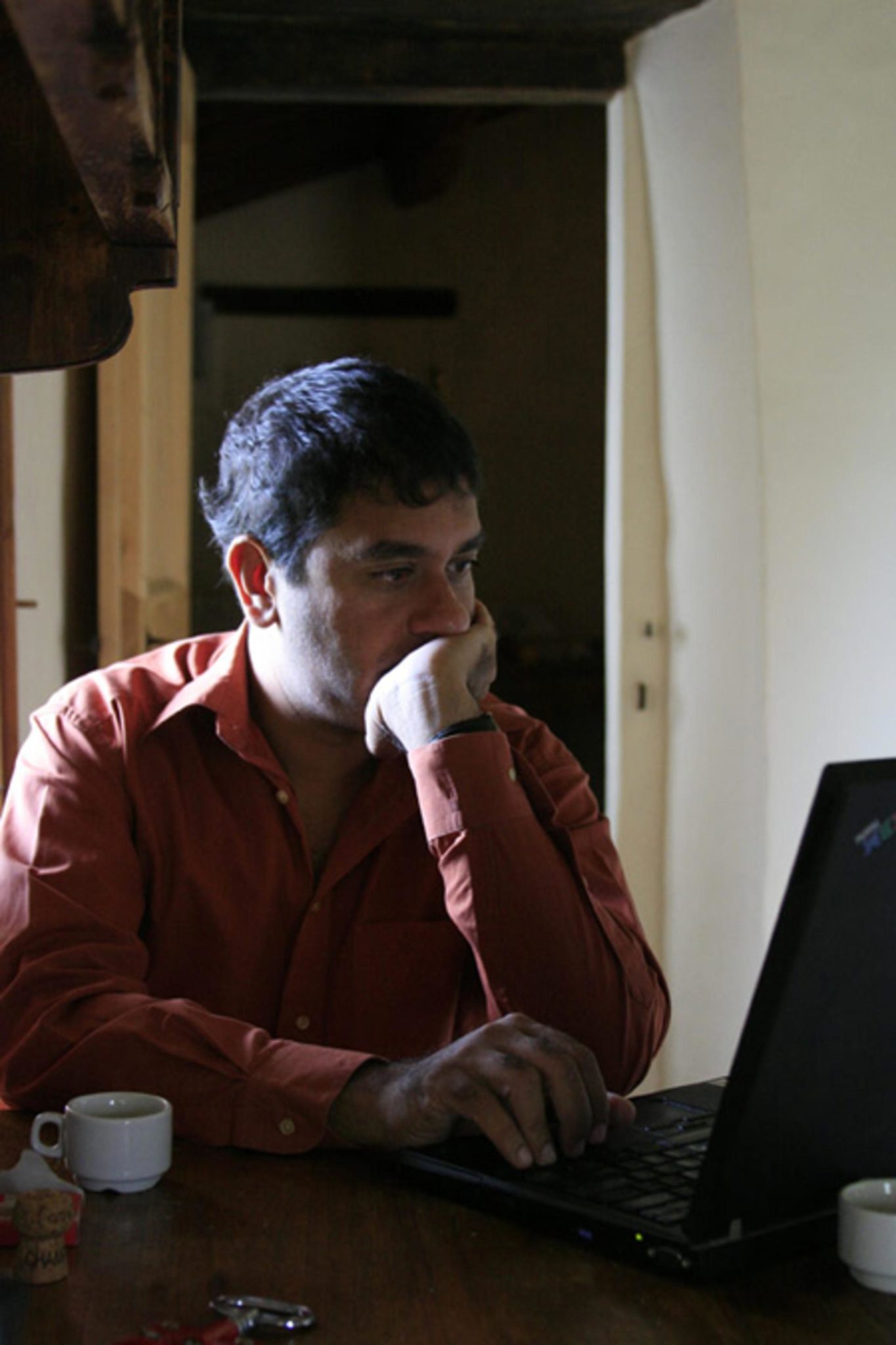Imraan Coovadia
Excerpt from the novel started at Civitella, called The Institute for Taxi Poetry:
The hierarchy inside a company is more informal than it might seem to an external observer. Once in a blue moon a driver graduates to the position of sliding-door man. About so often a sliding-door man undergoes a change of vocation, learns the basics of syllabification and versification, and takes a position as resident poet in a Cape Company.
Now, as far as I am aware, I am the only individual in the history of the transport sector, or one of the only individuals, to transition from driver, at sixteen years of age, to taxi poet, at the tender age of twenty nine.
I am not claiming to be special in any way. I’ve never felt I had any special talent to be a taxi poet above everybody else in the world . I simply had the good fortune to have Solly Greenfields take an interest in my career.
Solly had found me when I was a driver, encouraged me to learn the ropes as a sliding door man, and later instructed me in everything from the character of the semi-colon to the construction of scenes in long narrative poems. He had introduced me to the Portuguese classics including Camoens and Pessoa.
If it hadn’t been for Solly Greenfields, in other words, I would be a driver still at the awkward helm of one of Abdul-kader’s Hi-Aces. If I happened to be anywhere in particular, that is, since a driver’s median life expectancy, in this place, can be counted on a three-fingered hand.
Overseas, sure, it was a different situation. Social and geographical mobility were the birthright of Europeans and Asians. They had the systems. A fellowship at Oxford or Kyoto University could lead to a stint as the poet of an airline, shipping line, railway company, or a fleet of hydrogen-powered trucks and buses. Poetry was global, and by its very nature a technological-political enterprise.
During the Cold War, for instance, Charlotte Monaghan, the most respected poet on the world scene, moved from Belfast to Groton, Connecticut, to work at the Electric Boat Company which manufactured atomic missile submarines. Charlotte had mentored a generation of underwater poets at Groton, waking up their senses, teaching them her rough syllables. Even the city of Bangalore, in India, had a Hindi-language programme producing, in my opinion anyway, rather good motor-scooter poets.
We, at the Cape, were in a rougher spot, more haphazard and approximate, I would say, than was the situation in the developed world. We were small, vulnerable, ahistorical. There was no parallel in Cape Town to India’s grand old traditions, to Connecticut’s scientific and technological prowess, to Brasil’s enormous prestige and glamour, and, in general, to the arrangements that bigger societies such as Brasil and India made for their cultural reproduction.
NEWS
09/05/2021: Sneak Peak at Imraan Coovadia’s Forthcoming Book
